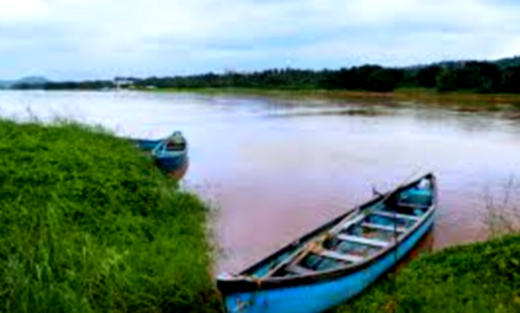
Will a bridge to Pavoor-Uliya island to mainland ever be built?
Mangalore Today News Network
Mangaluru, April 23, 2017: Long ago, a homemaker from Pavoor-Uliya island, could not save her husband Basil D’Souza, who suffered a heart attack 17-years ago because he could not reach the hospital on time. The island, 10km from the city, has no connectivity and the residents depend on a country rowing boat to reach the main land.

It’s not this sad story alone but one of the around 36 families comprising 200 persons on this island. Apathy of the people’s representatives and the district administration, these people are living in stone-age like era, cut-off from the outer world. Their problems get aggravated when the river swells during rainy season. Risking their lives every day, children cross the river to go to schools and colleges.
The 50-acre Island can be reached only by rowing for around 800 metres and one has to then take a two-wheeler ride towards the highway for a further 1.5km. "Everyday is an adventure for, between boat, overflowing river with strong currents and rains, trying to cross the Nethravati and go to schools," a student laments. To go to the other end, they have to assemble near a boat jetty by 6.30am. "As there is salt water, we need 4-5 pairs of footwear every year and we skip classes whenever there is heavy flood in the river," a students adds.
Earlier there was a government primary school but it was closed as teachers were unwilling to come. Even the residents have to cross a river and travel almost one kilometre just even to buy the grocery. They pay one and half times more money to get a LPG cylinder transported to their houses. Also, they haven’t constructed any new houses from several decades as transportation of raw materials cost them more.
Most of the island dwellers here eke out their livelihood by inland fishing and rolling beedis. However, due to rampant sand mining and other ecological imbalance, fishing activity has reduced and they are forced to take up alternative jobs outside their territory.
Though they live surrounded by water, they do not have potable water for consumption. Only one well situated adjacent to the chapel has potable water and the entire village depends on it. "We are forced to drink salt water. We first boil then consume it," says lady a student.